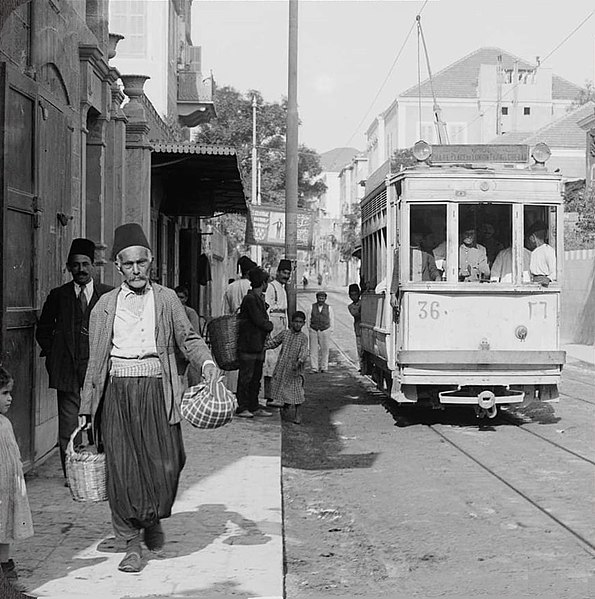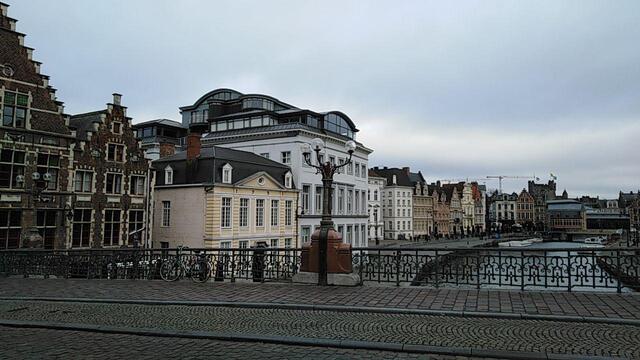Here comes another life update.
My biological clock seems to have chosen to remind me to post these
updates once every 6 months, with seasonal changes.
Since the previous post, everything has been hectic. The country I’m
living in, Lebanon, has plunged into an economic, financial, social,
political, and more recently, health crisis. As I’m writing these words,
it has defaulted on its debt payment.
While the focus of these posts is usually not my surroundings, the gravity
of the situation is coloring whatever I’ve been up to recently. Thus,
it’s imperative to start with a summary.
The past few months in Lebanon

Language: fire
Explanation:
My last post was on the 14th of September 2019, soon after publishing
it a lot of events unfolded.
For already a year, the Lebanese government had been in a dire
economical situation and clumsily tried to argue over which austerity
measures they would implement as a remediation. One culprit was the
currency itself. Having the Lebanese Lira as a pegged currency has
advantages and disadvantages. At this point in time, it was apparent
that keeping the peg was costly, it required the central bank to perform
juggling of financial instruments, buying debts from the governments
with its reserve, that would be paid back from the yearly revenue
of the country. Debts that could be given in both Lebanese pounds
and Eurobonds in US Dollars. However, the price of this maneuver
grew quite a lot. The debt to gdp ratio had become ~150% and debt
servicing made up 25 to 30 percent of the government expenditures (2019
budget,
2020
budget).
Adding insult to injury, the majority of those debts used
to be bought by local banks owned directly or indirectly by
politicians.
The lack of growth in the economy, which relied heavily on tourism
and a generous diaspora, can’t forever balance the peg. And the
financial moves cover the fact that people are literally paying for
it from their own pockets by giving up on basic public goods and
instead investing in their currency keeping its value. Additionally,
the almost non-existence of an industrial sector, or any export
sectors for that matter, means that all products are imported and
paid for in foreign currency, creating a vicious rampant inflation
cycle.
This lead to a rapid increase in the price of living in Lebanon, in
power-distance, and in inequalities the past years.
In sum, there were a lot of talks about new taxes, fees, cutting wages, increasing the retirement age in the public sector and a freeze in hiring of government workers, but not a lot of talk related to the stimulation of the job market other than telling people to buy local goods and products regardless of their higher prices. Even though starting a business in Lebanon is a lot of a hassle and could be made easier. There has been a lot of sweet talk about this but rather delayed. Who would want to give up their current lifestyle, who would bear the burden. Should we play the blame game?
Consequentially, there were a lot of small protests but the first
milestone, one that put the country on a standstill by having the highways
arteries blocked, was by retired veterans of the security forces that
disagreed and feared a bill that would reduce their retirement pensions
and privileges. There was no actual decision at this point, only rumors,
but the officials made it clear, to appease the crowd, that they wouldn’t
touch retirees pensions.
The security sector is a sensible zone to wander in legislatively. There’s
too much feelings involved as the army is the core of any country. Any
form of disrespect would mean spitting on their service. This is the
old adage from Ancient Rome.
An article on reuters quotes it best:
“This is our right, our sweat and blood,” former sergeant major Khodr Noureddine said. “Our salaries can’t even feed us for a day, there’s no school funding, no good healthcare.”
Yet, the collective memory forgets that this exact same scenario happened just two years earlier, in 2017, and that as a result many civil servants had gotten a raise of ~40%. What a conundrum for the dwindling budget.
The government was running out of options, options that wouldn’t put in peril their political future and their personal pockets.
We absolutely have to mention that the Lebanese army is heavily sponsored, not only by the Lebanese government where it makes around ~15% of the government expenditure, but by foreign benefactors such as the USA, Canada, Russia, the Netherlands, the UK, Italy, France, and more, which give billions in aid, donations, training, and equipment. Actually, the Lebanese government spends almost nothing on equipment and everything on personnel.
There was a time, before the civil war, where the military service used to
be obligatory in Lebanon. The army it composed used to be the smallest one
in the Middle East. After the civil war, in 1989, most of the militias
merged their arms together, other than Hezbollah, forming a new army
and officially taking over the country with the sectarian Taif agreement.
As a consequence, some politicians still use the army as their own
militia, or to sway public opinions. They use it as a bargaining tool,
offering jobs to the poorest while making their families pledge allegiance
to the political movement. The army has become a sort of universal basic
income in Lebanon, which means that everyone is related to someone with
a link in the army. The army is engrained in everything.
Meanwhile, Hezbollah was playing tug of war with Israel, as it usually do, showing it doesn’t care for Lebanese issues but more about its own interests, its brand of resistance™. If there was nothing to resist against they would have no raison d’être.
While security is extremely important, political elites play the sentiment
card to siphon foreign aids and bribe higher ups.
The entirety of the Lebanese political system works like this, factions
taking care of their turfs, appropriating themselves positions in the
parliaments that are related to projects where they can cook the books,
redirect funds, or take gigantic commissions. Each party has a cartel
of its own, even the non-official ones. It’s a system were hiring is
done on “wasta”, greed, bribe, and nepotism. A system where someone do
you favors so that you are forced to pay them back, mafia-style.
The ongoing internationally funded projects in Lebanon are countless,
but the huge discrepancies between what’s on paper and what’s on the
ground is astonishing. Lebanon receives an insane amount of funding
from: the UN, the EU, the World Bank, the Islamic development bank,
Commonwealth Bank, Arab Fund for Economic and Social Development, OPEC
Fund for International Development, Italy, French development agency,
Japan, Saudi Arabia, UAE, Kuwait, Qatar, Germany, USA/USAID, China,
Turkey, Oman, Spain, etc.. Yet, money always seems to be a problem, and
projects almost never get finished. This example from the European union
funds
shows how rotten the public sector is.
Clientelism reigns and companies that don’t accept the status-quo never
get contracts.
There’s no real long term planning, no real urban planning. Why is that? No organization in Lebanon has the right to sign big contracts other than the CDR, the Commission for Development and Reconstruction. A defunct branch of government used after the civil war that was brought back from its grave by the late Rafik Hariri to bypass regulation and legislation, to make the projects he wanted to do quicker. The CDR is under direct supervision from the prime minister, which was still Saad Hariri until recently. The projects and their fundings are listed on the cdr.gov.lb site, here is the 2018 report, and as you can see, a big share of the funding doesn’t come from Lebanon, most of the infrastructure in Lebanon was built by foreign entities.
A scandal was reported at the start of October: The PM, Hariri, had given
$16M to a South African bikini model named Candice Van Der Merwe as a
“gift”
and her government was suing her for not paying taxes on it. And
while the public took it only from the shock value perspective,
what was going on under the table was even more appalling. A nugget
of information that was lost was that Candice is the daughter
of a real estate tycoon and money launderer named Gary Van Der
Merwe, that resides and stores his money in the Seychelles tax
haven. The same Gary that appeared 350 times in court for shady
businesses.
What a way to stir up a population fearing economic collapse and already
sick of everything!
Soon after an environmental catastrophe shook the country, one where the
inefficacy of the decision makers was apparent: The forest of Lebanon
were on fire
and it couldn’t be stopped. Everyone soon learned that the government had
no equipment to deal with the situation other than using their anti-riot
vehicles mounted with water cannons. The firefighter helicopters
weren’t maintained and aid from the neighbors Cyprus, Turkey, Greece,
and Jordan was required.
The population got even more stirred up, sentiments were at their
highest, even though some politicians tried to move the discussion to
their advantage by blaming and using sectarianism.
A week or so after the wildfires, rumors got out that part of the
austerity measures would include new taxes on cigarettes and VoIP
calls. People got the word and went to the streets. What used to
be small protests until that point, soon erupted into humongous
ones.
Disapprovement was on everyone’s tongue.
Folks still wonder to this day what could’ve went into the mind of the
person that proposed the idea, in reality it was a proposal based on
deprecated Lebanese telecommunication laws, old man’s thinking per say. To
understand this decision we have to read the telecom sector history.
It may sound surprising to hear this in 2020, but VoIP is still
technically illegal in Lebanon even though anyone with a computing
device can open an app and call anyone anywhere else on the planet and
only pay for the internet data consumption. The ban is only enforced on
the telecom level to not loose profit from calls, this is why we don’t
have VoIP with LTE.
Back in the days, before 2004-2005, two private companies used to manage
and build the telecom sector, Cellis and Libancell. Each had very long
term contracts with the government with a maximum quota of subscribers
and a specific percentage it would pay the government from its profit
(from 20-40%). Their pricing used to be exorbitant compared to anywhere
else. However, those companies got greedy, they went above the quota
of subscribers and hid their profits. So, the government sued them for
breach of contract and required them to pay a fine. The contract was void,
the issue was settled, and Lebanon had in its hands telecom equipment
but nobody to run them.
A government agency called the TRA, Telecom Regulation Authority, got
created to set the national standards and regulations, set the pricing
of telecom related activities, meanwhile a bidding war got announced
for who would manage the network and at which price. The contract would
work like this: the government would pay for the telecom equipment and
the expansion, the companies winning the bids would manage the network
and get paid a fixed fee on a 3-4 year contract basis, and any profit
from it would go in its entirety to the government. (for more info see
2007
and
2005)
This is the situation we have today and the reason why someone thought
it was a novel idea to tax VoIP but in reality it was an archaic one.
While the price for mobile related activities has radically changed with the creation of the TRA, old perceptions are hard to move. The price on mobile is like a tax that cancels itself to pay back the energy sector debt. Plus, mobiles are an inherent part of Lebanese society and its business related activities, especially WhatsApp. Everyone is on their phones all the time.
Hence, the nation got on the streets and showed its discontentment,
more so than when it did in 2015-2016 with the YouStink!
movement
that I indirectly hinted at in this
post.
It was surprising to see the awakening of a population that had been
trained to stay away from politics, to not have its own opinion and
leave the field for the big players to enjoy. Lebanese have been numbed,
apathetic, and sickened of this from years of civil war, they have
been tortured by fear transmitted through sectarianism propaganda and
tribalism. The majority being completely disconnected from their own
country, acting as if they weren’t living in it, dreaming of fleeing
and always thinking of the worst.
Political discussions in the country are still immature, based solely
on emotions, personal benefits, turf and religious zeal. Moreover, the
social contract is missing, there’s a lack of social responsibilities
when it concerns the country as a whole. In sum, there’s no unity,
everyone has to live in their own bubbles and that means a full on
disrespect of anything that doesn’t profit single individuals.
Impatient opportunistic exploiters has been the way I used to describe
the daily social interactions in Lebanon.
For these reasons, I thought the protests wouldn’t stick but they did, one after the other, day after day, it erupted on the street. Enormous groups gathered, dancing and chanting “revolution”, “everyone means everyone”, wanting the fall of the current political elites, not sparring anyone. Overall, the protests were non-violent.
That led the PM giving himself an ultimatum to adjust his austerity plan to please the populace, otherwise he’d resign. Although we all know that a crowd isn’t a beast that can be appeased with words and reasons. Thus, the PM Hariri resigned along with his cabinet, leaving the country in a chaotic state, on the 29th of October 2019.
This event engender yet another slip in the Lebanese bonds, one more dive for the economy to handle: The lack of a functioning government.
The banks, which had closed on and off since the protests started for
security reasons, instituted restrictions on customers’ accounts. From
now on, no exchange from Lebanese Lira to US Dollar would be allowed,
which used to be the norm as Lebanon has a pegged currency. Additionally,
customers would be rationed their amount of hard cash currency per
week and per month, locally and internationally. The ration went
from $400/week to now $200/week in cash. That had the aftereffect of
causing a slow run on banks and giving rise to many parallel markets
for dollars which the central bank has tried
to thwart but couldn’t because it lacked the reserves to inject money
into the system.
This created an increase in prices in any imported products as
money exchangers were taking a higher conversion rate from LBP to
USD. The country experienced protests from shortages in gas stations,
bakeries, hospitals, etc.. Currently, Lebanese have lost around 40% of
their purchasing power. The biggest loss is on people that don’t deal
internationally, the ones that are paid exclusively in Lebanese Lira,
the people working for the government for instance.
Then a new government was formed, so called politico-technocrat, led
by Hassan Diab as PM, a PhD professor of Engineering at the American
University of Beirut that published over 150 scientific articles and
that previously ran as minister of education from 2011 till 2014.
He was torn apart between having to face both the anger of the street,
the previous political cartel of sectarian civil war veterans, the
elephant in the room, Hezbollah, and a monstrous economical and financial
situation. Not an easy feat to tackle, a political suicide one might say.
His small cabinet of
20,
defunct of Hezbollah opposition parties which boycotted the formation,
had the difficult task to balance public trust, local and international,
along with austerity measures, a crumbling money with a population losing
their livelihood, and the financial sector on a locked down.
Naturally, the anger on the street couldn’t be rationalized
with. Emotions create rise to hatred and blame. The train couldn’t
be stopped. Indirectly, the people made a choice because they had no
trust in the system, a system they were disconnected from. They refused
austerity measures because they didn’t believe they would work. They
felt disrespected, they felt a lack of true leadership.
Lebanese made a choice, a self-imposed reset, whatever the cost.
So on the 9th of March 2020, Lebanon’s first-ever debt default happened.
Amidst all this, the covid-19 cases in the country are increasing day by day, currently sitting at around 50 cases, the first patients coming from Iran and Egypt.
And.. The global stock market is in a whirlwind of a mess too.
Is it a collapse, I’ll let you judge.
This is what’s been happening the past few months. If you want to read more about this, check this wikipedia article.
Psychology, Philosophy & Books
Language: brains
Explanation:

I’ve read quite a lot, on average 2 to 3 books a months.
Here’s a list of the technical books:
- Software Architecture in Practice 3rd edition - Finished it since last time
- Building evolutionary architectures - Neal Ford
- The clean coder: A code of conduct for professional programmers - Robert Martin
- Domain-Driven Design - Eric Evans - Currently reading, almost done
I’ve also embarked on the first technical podcast that I enjoyed:
The non-technical books are:
- Artemis - Andy Weir
- Station Eleven - St.John Mandel Emily
- The institute - Stephen King
- Maybe you should talk to someone - Lori Gottlieb
- Howto - Randall Munroe
- Whatif - Randall Munroe
- The handmaid’s Tale - Margaret Atwood
- The design of everyday things - Don Norman
- The Art of loving - Erich Fromm
- Thinking, Fast and slow - Kahneman
- Collapse, how societies choose to fail or survice - Jared Diamond’s
- Capitalism without capital: The rise of the intangible economy - Jonathan Haskel
- Alchemy & Mysticism (Bibliotheca Universalis) - Taschen - Currently reading
- Factfulness - Rossling - Currently devouring
Other podcasts I’ve added to my long subscription list are:
- The motley fool money
- Freakonomics radio
- The Lebanese politics podcast
- Mythical monsters
Usually I avoid getting books before I’m done reading what I have but considering the current situation I’ve added the following never-old classics to my collection:
- The better angels of our nature: Why violence declined - Stephen Pinker
- The book of M - Peng Shepherd
- The gene - Siddhartha mukherjee
- Beyond software architecture: Hohmann
- Algorithms: Sedgewick
- Computer Architecture: A Quantitative approach - Hennesy Patterson
- Operating system concepts - Silberschatz
- Compilers - Aho Lam Seth Ullman
My book collection is stacking up and I’m really thinking I should build a library.
Learning, Growth
Language:growth
Explanation:

I’ve grown quite fond of the domain of software architecture. So far I’m on a roll, reading and watching videos every day on the topic.
In total:
- 335 articles
- 95 videos
- 10 research papers
- 5 books
My Anki decks are full of knowledge that I review to not let it spill out after I’m done with consuming the content.
I’ve attempted Kata programming exercises, which is something anyone should try once to get out of their routine coding techniques.
I’ve published my first blog post related to software engineering practices.
Eventually, I want to pass the Carnegie Mellon University software
architecture certification program. But, as you’ve probably noticed,
it’s not the best moment to spend money online with all the banking
restrictions.
So instead I’ll continue writing articles whenever I can, sharing
knowledge.
Ascii Art & Art
Language: ASCII
Explanation:


I haven’t published many ASCII art pieces. The one you see above and the ones in Impure 74 and Impure 75 packs.
Other Learning
Language: gray matter
Explanation:

It’s been almost two months since I’ve done my last singing session. Instead, I’ve learned to juggle, at least with 3 balls.
As far as the brainteaser, Elevate, goes, I’ve used it religiously and am on a 318 days streak.
Apart from those I’ve been reading on emotional intelligence on Emotional Granurality and been watching ton of documentaries on Curiosity Stream along with some movies about the 2008 crisis and the Enron company.
On the other side, food wise, I’ve been gifted a fantastic apron for my birthday and it has reinvigorated my love for cooking.
Finally, it’s noticeable that I’ve developed a huge interest in Urban planning, management, leadership view, decision making, and been digging into RFPs, big projects, history, sociology, deals, primarily I’ve been interested in politics.
Life and other hobbies
Language: life
Explanation:

I spent a week in Brussels at the beginning of February to attend FOSDEM and do some sightseeing.
At FOSDEM I’ve finally met face to face with some nice fellows from nixers.net, namely eyenx, joshua, and pyratebeard. The conference itself has so many talks that it was a hassle to plan properly which one to attend. In the end it was a success and I didn’t miss any of my favorite speakers or topics.
In Belgium I had a blast at the museum of art and history, I’m a big fan of museums.
Now
I would end with “Which all leads to what’s in store for tomorrow. More of the same but upgraded.” but today I need a bit of change.
I’ll still put all my efforts on software architecture but I’ll also
try to open new opportunities. Freshness is really needed right now.
Plus whatever I’m already doing but more of it!
This is it!
As usual… If you want something done, no one’s gonna do it for you, use your own hands.
And let’s go for a beer together sometime, or just chill.
If you want to have a more in depth discussion I'm always available by email or irc.
We can discuss and argue about what you like and dislike, about new ideas to consider, opinions, etc..
If you don't feel like "having a discussion" or are intimidated by emails
then you can simply say something small in the comment sections below
and/or share it with your friends.